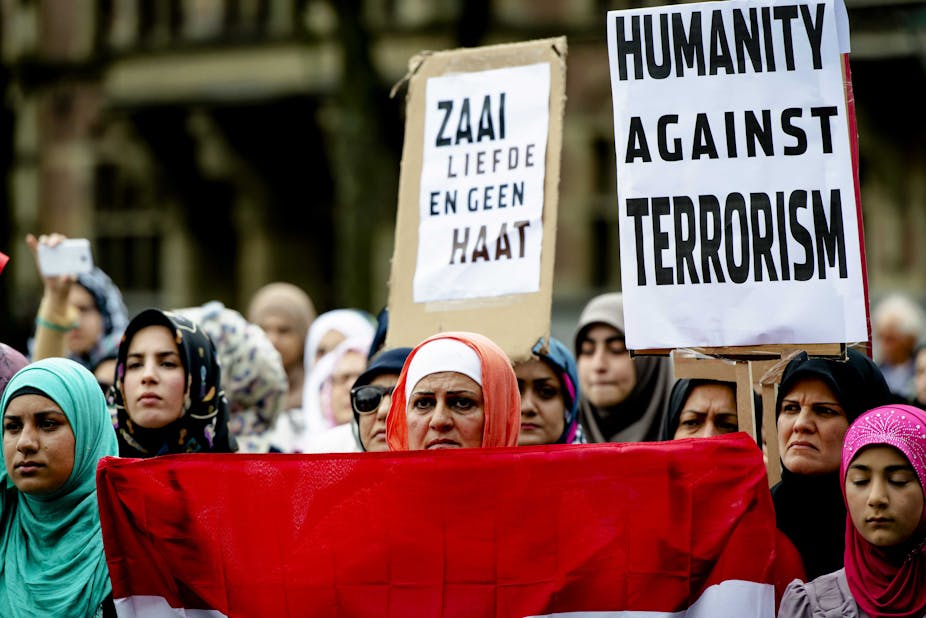The July 24 report by UN official Jacqueline Badcock that ISIS, the militant Jihadist group now controlling areas of Syria and Iraq, had ordered all women between the ages of 11 and 46 to undergo female genital mutilation (FGM) was rightly met with both outrage and scepticism.
Though certain Kurdish and other Iraqi sources maintain the veracity of the story, ISIS has denied issuing the fatwa. The controversy comes at a time when FGM has been in the news as a result of the Girl Summit and the British prime minister’s declaration that parents who allow FGM will be prosecuted.
ISIS and other jihadi groups routinely inflict physical, psychological and cultural harm on conquered or subject people. It was this background that gave the UN report popular credence.
Their cause is abhorrent and their members psychopathic, and they recognise no robust private sphere of life in which diversity or freedom of thought can operate. They are keen to inflict an ascetic, heavily circumscribed life on their subjects – particularly with regard to female sexuality.
Given that FGM is conducted by various groups which identify as Muslim and given that, unlike in Christian and Jewish scripture, there are contestable hadiths or teachings in Islam which can be interpreted as not explicitly prohibiting the practice or setting limits on its severity – even endorsing it – there was no reason to believe that ISIS would be incapable of issuing such an edict if it wished. Indeed, so pernicious and devoid of irony is ISIS that the fatwa, if a hoax, may even act as a policy proposal.
Reality check
The reality, however, is that there are great cultural and geographical differences in FGM practices. Most practising communities are found in Africa, with the notable exception in Iraq of certain Kurdish communities. It’s not a practice which is grounded primarily in scripture and is also found in groups that identify as Christian, animist and otherwise.
While the practice has little or no cultural traction in the vast majority of Iraqi communities, the fact that some of the most fervent ISIS members are from North Africa and other parts of the Islamic world may either mean that FGM is endorsed by some of their members or that the “hoax” was propagated as a means of highlighting the foreign nature of the conquest and occupation.
Forced cutting as subjugation
One of the problems that this topic highlights in the specific context of fanatical warfare and conquest is how bodily mutilation (and the word is appropriate here, though not necessarily in other cases, since the subject of the cutting is intended, in this circumstance, to feel mutilated and suppressed) has been as a means of humiliating, subjecting and “converting” conquered people.
While forced FGM would appear to be relatively rare, the practise of forced circumcisions of men is more common. Jewish groups in antiquity circumcised slaves and conquered groups. In recent times, Luo men in Kenya were forcibly circumcised by the larger Kikuyu tribe and other circumcising groups. And there have been sporadic incidents of Muslim groups forcibly circumcising non-Muslim people, including in Iraq, at various times in the history of Islam.
All forms of non-medical genital cutting are grounded in identity, marking someone’s transition either from childhood to adulthood or from one cultural group to another. Forced circumcision not only means inflicting physical pain and suffering on victims, it also means cutting away their identity and marking permanently and irreversibly their subjection to another cultural group.
The alleged ISIS fatwa seems unlikely to be true, but it does remind us of the long tradition of extremists in various parts of the world using mutilation to subjugate people, with forced cutting as part of subjugation a long tradition with men. The horrors experienced by women, through rape (also experienced by men), forced marriage and forced conversion, among other things, are already significant enough.
We can but hope the ISIS fatwa is indeed a hoax, but the horrors perpetuated by these jihadi groups already demonstrate that their arbitrary and limitless power in the areas under their control is the very worst scenario for residents. If they want to inflict FGM or rape or forced conversion or murder on people, they have the capacity.

